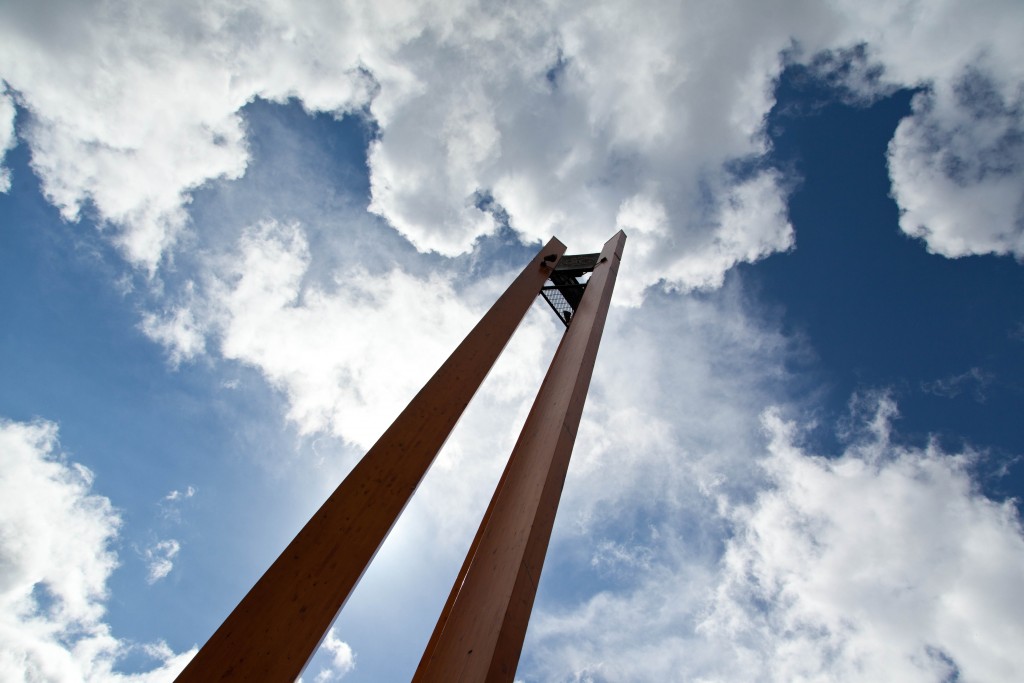Page 12 • (267 results in 0.021 seconds)
-

, community, and a place to breathe. PLU Interfaith Working Group: The Interfaith Working Group consists of students, faculty and staff. Recent interfaith events include the winter Celebration of Light, a Passover Seder, the creation of a Multi-Faith Meditation and Prayer Space and the Interfaith Games. Email interfaith@plu.edu for more info. The Diversity Center — The Diversity Center is committed to empowering the PLU community to engage in dialogue, programs, and initiatives that promote and enhance
-
presentations by students, faculty and visitors and participated in thoughtful dialogue about our changing world. Participants engaged the community on issues of justice, health, sustainability and peace. Music, dance, food and celebrations were enjoyed by all from around the globe. Former Vice President Walter F. Mondale presented his address, “The Changing World Conversation.” World Conversations 2009 included a keynote presentation by Professor Chuck Bergman on his ongoing research in the Amazon on
-

would be great for it.’ ”The Diversity CenterThe Diversity Center is committed to empowering the PLU community to engage in dialogue, programs, and initiatives that promote and enhance equity, agency, and action.Center for Gender & EquityPLU’s Center for Gender Equity supports, challenges, and empowers students, staff, and faculty to combat gender-based oppression and enact positive social change. Read Previous The Strength of Faculty Mentorship Read Next Get out of the classroom: Study Biology at
-
curricularDiversity in the Core curricular requirements approved by the Faculty. 1997 Creation of UDCCreation of University Diversity Committee approved by the Faculty. This standing committee, responsible for oversight of the diversity effort, is supplemented by the Diversity Committee for Cultural and Educational Programming. Dialogue to evaluate changeDialogue among faculty and administrators involved with diversity to evaluate effectiveness of existing committee structure and to propose changes. Adoption of
-
change, are core to our life together moving forward. This is a dialogue that requires us to sit together in our humanity, and, for those of us who participate in whiteness—myself included—to hear, hold, and be accountable for the harm that white supremacy at PLU has perpetuated for our Black colleagues and students and colleagues and students of color as a whole, and that we have allowed it to perpetuate… Even as we grapple with an uncertain financial situation and the impact of COVID-19, this is
-
Why Study Environmental Studies?Learning about the environment offers opportunities to integrate studies of nature and natural systems with those of human systems, and to bring both into dialogue with a humanistic understanding of ideas and values. Environmental studies also offer tools and knowledge with which to respond to many of the greatest challenges facing humanity in the coming century. We live in an increasingly endangered and altered world: plants and animals are driven to extinction
-

behavior fosters estrangement rather than connection, and it ignores the complexity of every person. We must be aware of systemic injustice and inequity, while also welcoming open and honest dialogue to bridge our divides. To that end, we invite all community members to an open session to discuss the impact of Charlottesville on Thursday, August 17 from 12-1pm in the AUC Atrium. I look forward to seeing you there. PLU is a better place because of our diversity and because we value the critical
-

. Learning is our shared resource, and dialogue our tool. As engaged participants in our body politic, we must remain vigilant to protect our learning community and the values we care about and that are core to our mission. This is not the time to debate partisan positions, nor is it the time to close one’s eyes or to stop listening. We need more conversation across political and cultural differences. We must come together in solidarity as Lutes who care deeply about our country, our communities, our
-
resources. In keeping with the intellectual imperative of the University and the instructive value of dialogue, educational or artistic merit and inclusion of multiple perspectives will be the normative basis for decisions. The use of the University as a forum, however, in no way implies University approval or endorsement of the views expressed by material distributed, by a speaker, in a public performance, in a film, or through other communication mediums.Distribution of Non-Academic LiteratureThe
-
The Matrix EditorDescriptionThe Matrix seeks to facilitate dialogue within the PLU community regarding issues of social justice and provides an outlet for students and faculty to explore the numerous ways in which social justice takes form. The editor is responsible for the production and publication of The Matrix each semester. This includes advertising for submissions, editing, and facilitating the layout and printing of the publication. The editor should be an individual who is passionate
Do you have any feedback for us? If so, feel free to use our Feedback Form.


